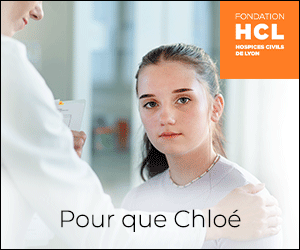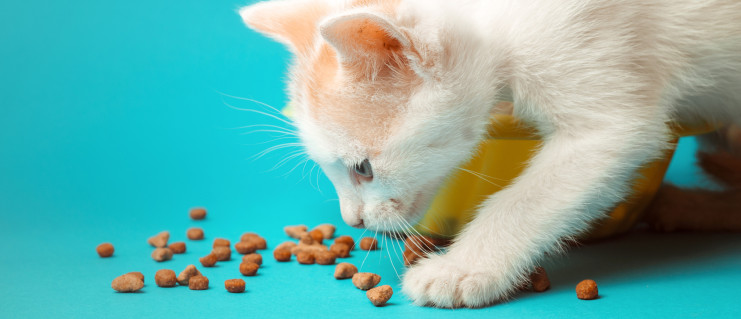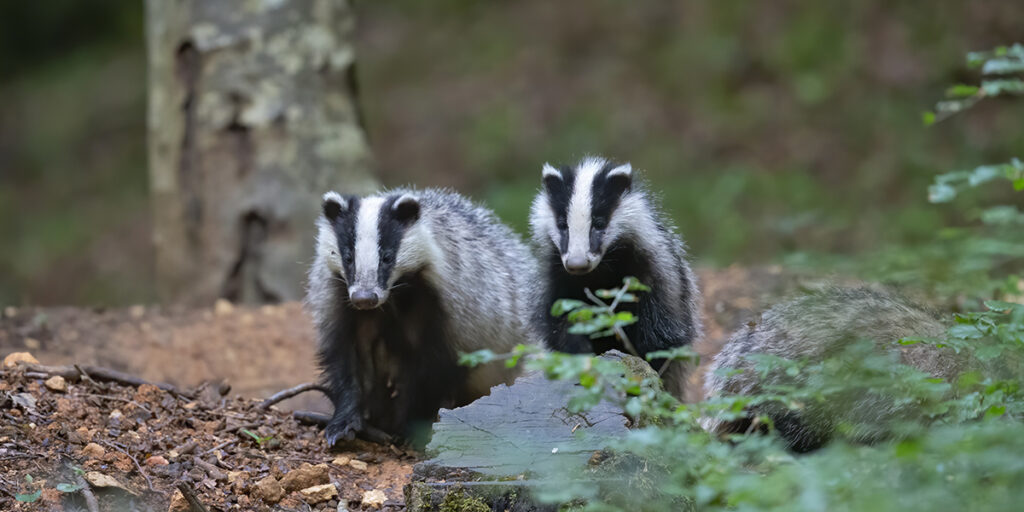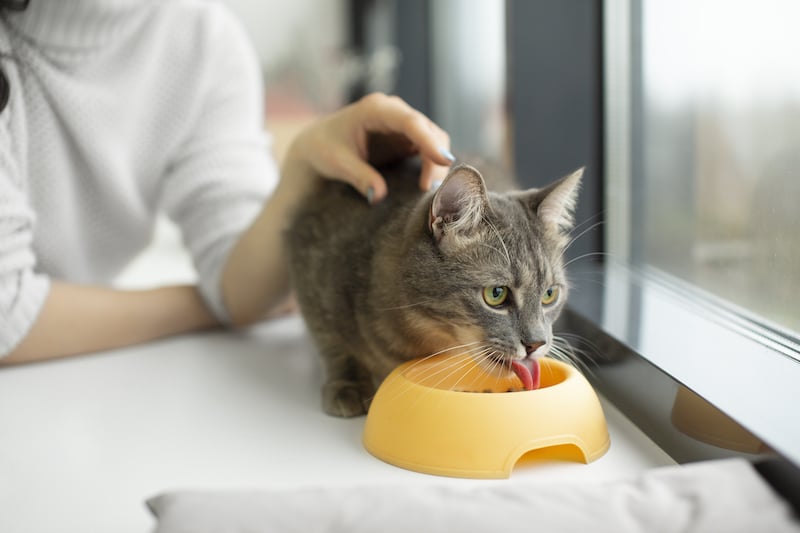
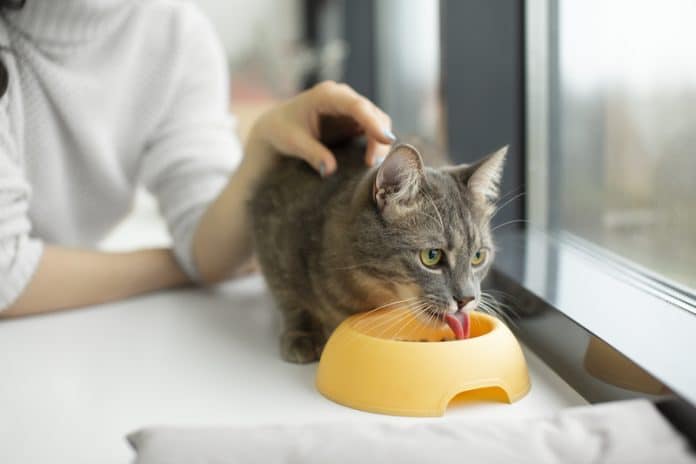
While it is easy to list the foods they love, certain foods that are harmless to us can be extremely harmful, even fatal, for our feline friends. Understanding these potential dangers is crucial to ensuring our cats' food safety and avoiding possible poisoning. Point.
Foods to absolutely avoid
- Chocolate: Chocolate, especially dark chocolate, contains theobromine and caffeine, two substances that are highly toxic to cats. Ingesting chocolate can lead to heart problems, seizures and even death.
- Onions and Garlic: Onions and garlic, whether raw, cooked, or in seasoning form, can cause red blood cell destruction in cats, leading to potentially fatal anemia.
- Grapes and Raisins: Although the exact reason is not yet known, grapes and raisins are associated with severe kidney failure in cats. It is best to avoid them altogether.
- Dairy products: Contrary to popular belief, many cats are lactose intolerant, which can cause gastrointestinal problems such as diarrhea. Avoid giving your cat cow's milk and opt for lactose-free milk.
- Chicken and fish bones: Bones can break into small, sharp pieces, posing a choking hazard or perforation of the gastrointestinal tract. It is best not to give your cat bones.
- Sweet foods: Sweet foods, such as candy, cake, and gum, contain xylitol, an artificial sweetener that can cause a massive release of insulin in cats, leading to severe hypoglycemia.
- Macadamia nuts: Macadamia nuts are toxic to cats and can cause vomiting, muscle weakness and tremors.
- Raw bread dough: Raw bread dough can ferment in your cat's stomach, producing alcohol and causing potentially fatal bloating.
- Spicy foods: Spicy foods, such as chili peppers, can irritate cats' stomachs and digestive tracts, leading to abdominal pain.
- Dog food: Some dog foods contain ingredients that are dangerous to cats. Be sure to feed your cat a diet specially formulated for felines.
Signs of poisoning in cats
It is essential to know how to recognize the signs of poisoning in your cat. Symptoms may vary depending on the food ingested, but generally include:
- Vomiting
- Diarrhea
- Lethargy
- Seizures
- Breathing difficulties
- Tremors
- Loss of appetite
- Increased thirst and urination
- Stools outside the litter box
If you observe any of these signs in your cat and suspect poisoning, contact your veterinarian or animal poison control center immediately. It could also be a tapeworm infestation.
Prevention and food safety
Prevention is the key to avoiding food poisoning in cats. Here are some tips to ensure your feline’s food safety:
- Keep toxic foods out of your cat's reach.
- Do not share your food with your pet.
- Educate yourself about dangerous foods for cats.
- Read pet food labels carefully.
- Opt for treats specially designed for cats.
What to do in an emergency ?
If you think your cat has ingested a toxic food, follow these steps:
- Contact your veterinarian or animal poison control center immediately.
- Try to determine the amount and type of food eaten.
- Do not attempt to treat your cat at home without veterinary advice.
Rapid intervention can mean the difference between life and death.
Your cat's food safety is your responsibility if you are an owner. By knowing about toxic foods, recognizing the signs of poisoning and acting quickly in an emergency, you can keep your four-legged friend safe. Every cat is different, and some may be more sensitive to toxic foods than others. Always consult your veterinarian for advice specific to your pet.
TO KNOW
If you want to vary your four-legged companion's diet, choose white meats. Chicken or turkey are very digestible for cats!
